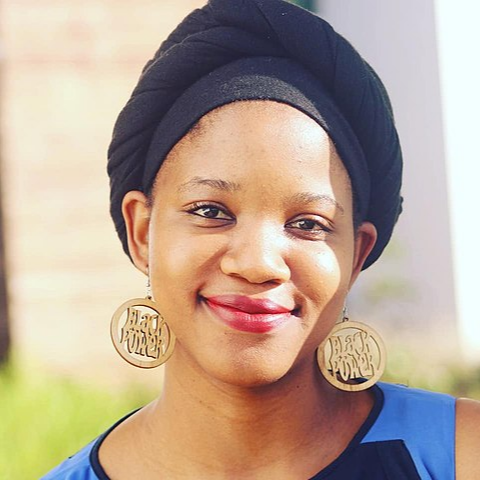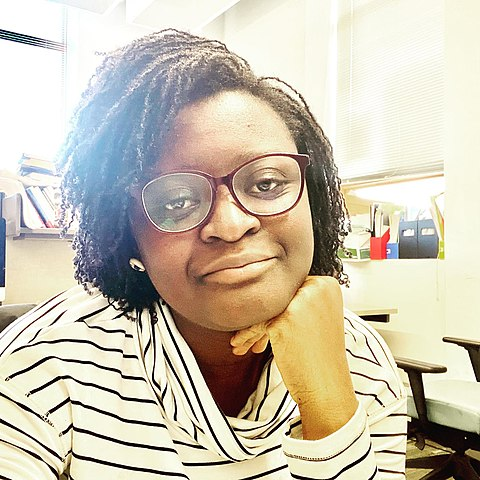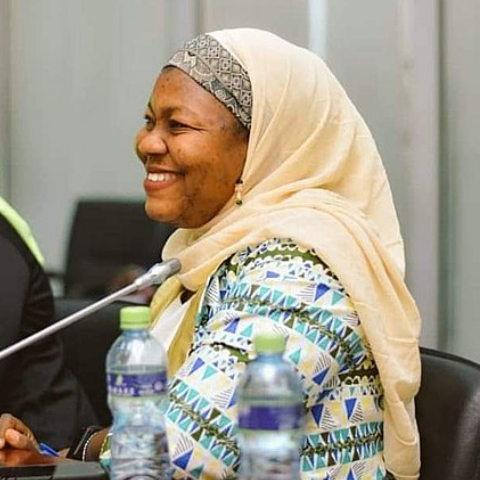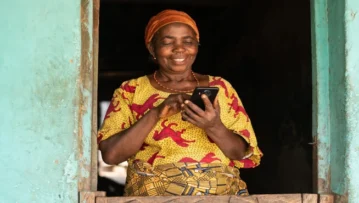This post is published in partnership with the digital magazine FeminStyle Africa.
Authors: Ivy Fofie, Caren Aiyabei and the #VisibleWikiWomen team.
When womxn are not writing the news, our voices, perspectives and worldviews are excluded from the stories that get published. When we are not the decision makers around what gets published, our images, stories and contributions are erased or often portrayed through a biased and stereotypical patriarchal lens. We are far from reaching gender parity in media and communications as womxn have, historically and currently, faced (ing) systemic challenges to become seen, celebrated and recognized as leaders in the field.
Globally, there are just a handful of women who lead international media corporations and, in Africa, there is a decreasing number of female journalists. Womxn are are being pushed out of their careers due to poor working conditions, such as being less likely to get a promotion and cover high profile stories while being more likely to face sexual harassment. To change this reality, four African women — Henrietta Bonney-Mercer, One Pusumane, Ivy Fofie and Bashiratu Kamal— decided to create their own feminist reality by challenging mainstream media with a digital magazine that centers the experiences and perspectives of all African women.
Since its launch in September 2020, the digital magazine FemInStyle has published more than 70 stories of womxn in Africa. These are inspiring portraits of women who challenge every traditional role women have been relegated to by society. Be it by finding their path to be a trailblazing scientist, standing by incarcerated women in Burkina Faso, living resistance through activism in Nigeria, or breaking up the status quo as a sex worker. Making women and their feminist realities visible online is all about placing these stories, and the extraordinary women who embody them, in the spotlight.
A close up to the four African journalists who dreamed FemInStyle

“Feminism means womxn’s safety as an important consideration in how policy is made. It is about ensuring a level playing field for all genders” says Hetty. “I believe that feminism should be intersectional and anything less than that is self-aggrandisement. We must treat all women with the same level of respect and consideration.”
Hetty’s desire to see a world where womxn’s voices are heard and their influence and contribution to society felt, led her to start FemInStyle Africa. In her own words, Hetty says the magazine exists to create a safe space where womxn can tell their stories from their own unique perspectives and bring nuance to the conversations about African feminisms. Hetty believes that, these conversations will bridge the gap between feminist theory and practice particularly pertaining to magazine content which she says usually focus on fashion and lifestyle. Hetty and her feminist colleagues spread across Ghana, Nigeria, Uganda, Kenya, Tanzania and Botswana are committed to having an all-encompassing content that empowers all womxn to use their voices to affect change.

One Pusumane was motivated to join FemInStyle Africa because of the magazine’s ethos of centering women’s experiences and voices. “I remember in my early days of discovering feminism, I used to be so scared to be attached to the feminist label or be open about by activism due to the ‘what-aboutism’ culture,” said One. “To encounter a platform that is unapologetic about being women centric was my aha moment and since joining the team, I have had the chance to experience sisterhood that transcends difference” she added. “More importantly, I have grown so much in my activism and I have no issue being radical about it.”
One holds that feminism is the ability to take up space, to be seen and recognized by those around you, structures, institutions and otherwise without fear. She believes that it is also recognizing how society works, how privilege operates in creating hierarchies, whether these are along the lines of class and race. One believes that feminism recognizes broader structures and mechanisms of oppression and offers tools for dismantling them both online and offline.

As the Editor-In-Chief at FemInStyle Africa, Ivy is relentless at calling out inequality and gender biases. As a teacher and researcher of gender and media, her research looks for gendered undertones, and she strives to bring the struggles of women to the fore and amplify their voices. All this comes together for Ivy at FemInStyle as she can bring her research to life by centering the voices of womxn.
Ivy believes that feminism means equality of all genders. She holds that there should be no discrimination on gender lines, and everybody must be treated equally and not based on their genital organs. “I am passionate about bringing women to par, as they have been historically marginalized, and so creating a level-playing ground that will ensure parity is paramount,” said Ivy. She maintains that although some people may consider affirmative action as biased towards womxn, men have always been the default in society, and so parity can never be achieved until the playing field is first leveled.

Bash contributes largely to FemInStyle Africa’s political column. She is interested in policy and legislative changes at the workplace that focus on womxn. These include laws on maternity and childcare and the need to increase the number of women in leadership.
Bash believes that through activism, most people have become conscious about their framing and language usage in stereotyping womxn. She dreams of a just world and an equal future for everyone. A world where gender does not matter in accessing economic, social, and political opportunities and the quest for total liberation of women. A world where there aren’t any more victims and survivors of Gender-Based Violence.
As part of #VisibleWikiWomen 2021, Henrietta, One, Ivy and Bashiratu now have their images published under a free license on Wikimedia Commons. We hope that in the future they will also have Wikipedia articles where we can learn more about their trajectories and their efforts in highlighting so many African feminist realities online. In the meantime, we are thrilled to celebrate these four women journalists by making them visible on Wikipedia and the broader internet.





